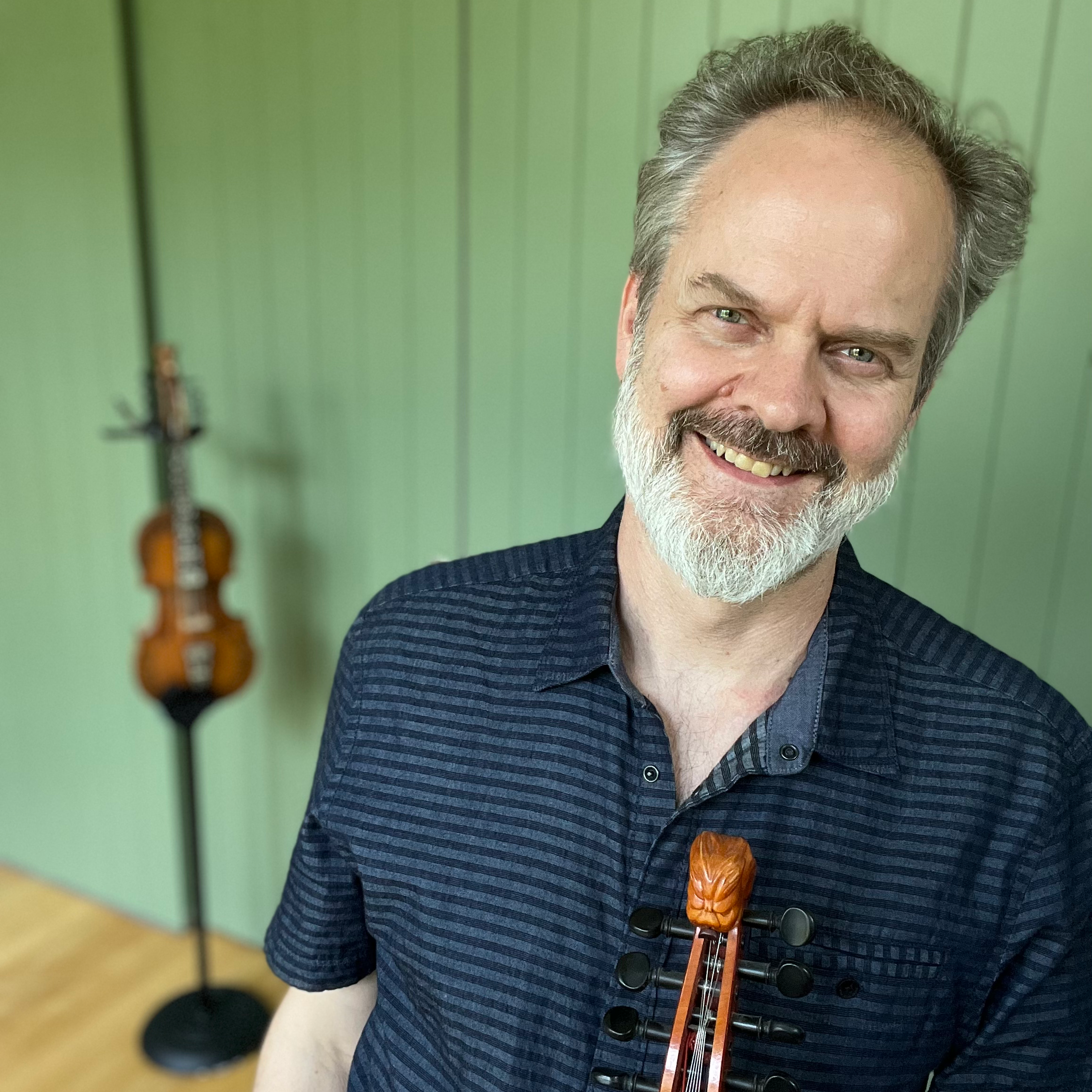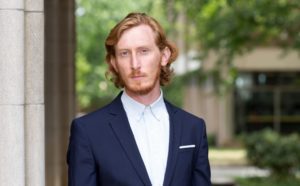The Senior Thesis is an integral part of every undergraduate’s journey at Princeton — an opportunity to dive deep into a topic of the student’s choosing and, under the guidance of a faculty advisor, develop a substantial independent project synthesizing their discoveries. This series celebrates the diversity of senior theses created by our Music Majors.
—
Dan Trueman, Department Chair & Professor of Music
“One of the most important things for Princeton students to think about is: what is the thesis you want to work on? The answer to that question should be a guiding principle for what you decide to major in.”
It’s true that Music Department Chair Dan Trueman has advised his share of composition theses over the years — projects ranging from interactive music theater works to chamber works for as varied instrumentation as vocal ensemble with percussion to string quartet, electronics/tape, and narrator — but as an advisor, one of his joys has been the opportunity to help students discover the thing they’re most excited about, whether composition-based or not, and to guide them in bringing that something new into the world.
“The thesis is such an incredible opportunity for students to grow as musicians, whether they’re composing music that they love, writing about music that they love, working with fellow musicians that they want to make music with, making an album, or building an instrument.”
Take Trueman’s current advisees: current seniors Alexander Moravcsik and Kevin Flahive (class of ’23). Flahive is working on an album of narrative-driven songs, influenced by such sources as the folk revival music of the ’50s and ’60s and Bob Dylan. Moravcsik’s thesis is a DJ set. (Later this semester, Trueman will go where few Music Department faculty have gone before — to Princeton student eating club Terrace, where his advisee celebrates the culmination of his independent work with a late-night live set for a room full of his peers, plus one advisor.)
Below are three of Trueman’s favorite advisee stories from over the years: Eli Berman (’20), currently in the grad program at Dartmouth; Emma Powell (’17), a violinist who went on from Princeton to complete her graduate studies at Rice University’s Shepherd School of Music; and Tanyaradzwa Tawengwa (’14), who recently returned to campus to pursue a Hodder Fellowship and embark in the START Entrepreneurs program.
Eli Berman (’20)
Xibuccal Instruments: Designing Expanded and Interconnected Vocal Tracts
“One of the pleasures of teaching Princeton students,” Trueman explains, “is that they’re all so different.” One might also add that they rise in the face of a challenge. Right before COVID struck, Eli Berman (’20) was making good progress on her thesis, an experiment in expanded and interconnected vocal tracts, enabled via a collection of built instruments called Xibuccal instruments (a portmanteau combining the term bibuccal, meaning two mouths, with the variable x, indicating any number of mouths).
The instruments themselves were straightforward: a collection of wearable, connectible, acoustic versions made from manipulated pieces of PVC pipe enabled vocalists to sing into one another, and other, digital versions (created under the guidance of Trueman, Director of Electronic Music Jeff Snyder, and StudioLab advisors) allowed a single vocalist to sing into themself. But the concept — and the physical experience of “playing” the instruments — was novel.
“Eli created these overtone flutes in our MUS 204 instrument-building lab and then connected them and had people try to play together. It was crazy. On the one hand, it was super hard to make any sound, but it was also super intriguing because you could feel the other people’s lungs and windpipes in this shared space.”
Berman had already begun the series of experiments and recordings that would form the narrative of her thesis when COVID struck in the spring of 2020. Singing side-by-side, let alone singing directly into another vocalist’s mouth, immediately became a high-risk activity — and a restricted one, according to emergency campus regulations. She pivoted focus to digital instruments, recording videos of her solo experiments at various locations around campus.
“COVID was an act of violence to Eli’s thesis.”
Berman’s thesis ultimately included those videos and a substantial essay charting her process and pivot. It was not the thesis she’d envisioned, but it nevertheless served as a foundational moment in the ongoing development of her philosophy about voices, work that she continues today at Dartmouth’s Master’s Program in Digital Musics.
Emma Powell (’17)
On Tuning Systems and Harmony: A Practical Guide to the Extended Helmholtz-Ellis JI Pitch Notation
Just as Berman’s experiences as a vocalist served as a driving force behind her work, for Music Major Emma Powell (’17), her own lived experiences as a trained classical violinist were the impetus for a thesis that would enable her to grapple with core concepts foundational to her musicianship.
Trueman first met Powell when she took his semester-long course MUS 204: Musical Instruments, Sound, Perception, and Creativity. The course, which covers varied topics including sound, perception, embodiment, music theory, social values, and more through the lens of musical instruments, includes an extensive component around tuning systems and how instruments are tuned.
“Tuning is a wonderfully complex and messy historical topic. And it’s always an eye opener for the students, who’ve grown up with so-called Equal Temperament where all the intervals are exactly the same, when in fact most of the music they play was written at a time when the instruments were tuned in much more idiosyncratic, personal ways.”
Powell, who has perfect pitch, had been frustrated during her years of violin training whenever her teachers would tell her that she was playing out of tune. They were challenging the intonation that she felt was “correct,” but she had no vocabulary to determine why or how to fix it.
Powell’s thesis, A Practical Guide to the Extended Helmholtz-Ellis JI Pitch Notation, was her way of filling in this gap in violin pedagogy — a way of drawing a violinist’s attention to the various concrete things that need to happen in order for one to play perfectly in tune, taking the Extended Helmholtz-Ellis Just Intonation pitch notation system as a jumping off point.
Tanyaradzwa Tawengwa (’14)
The Dawn of the Rooster: A Choral Drama
Trueman may have been Tanyaradzwa Tawengwa’s thesis advisor, but he remains adamant that it was, in fact, Tawengwa who was teaching him — not always the other way around.
Tawengwa (’14) is a Zimbabwean scholar, healer, composer, singer, and gwenyambira (mbira player) who, since graduating in 2014, has returned to campus for two prestigious opportunities: the 2021-22 Hodder Fellowship and, currently, the START Entrepreneurs program. It has been a joy to have Tawengwa back on campus and a welcome opportunity for reflection among the faculty who knew her best.
“Whenever we would meet to discuss her thesis, Tanyaradzwa would teach me about her music and her ideas, and I would be her sounding board.”
There is no such thing as a “typical” thesis — certainly not in the Music Department and perhaps not even across all of Princeton’s many departmental majors. Each and every student approaches the senior thesis with the depth and breadth of all their lived experiences, combined with three years of a Princeton story.
Tawengwa’s own thesis was titled The Dawn of the Rooster. It was a politically-subversive choral drama that blended Western and Zimbabwean musical traditions together to share the story of Tawengwa’s family during the Second Chimurenga, the Zimbabwean struggle for liberation from 1965-1980.
“The Princeton Music Department is a Western classical department at its roots. And we’re very good at that. But we never want students to not major in music because they think, oh, I can’t do my kind of music here. That’s just not true. Tanyaradzwa’s thesis — and theses from other Music Majors — are a testament to that.”
The physical form of Tawengwa’s thesis includes a musical score and an essay explaining the cultural and instrumental motivations behind the work, elements of her process, and early ideas around the community that continue to inspire her every artistic endeavor today. But so much of that thesis, according to Trueman, was the community that she inspired when it was performed on campus in 2014.
“So much of what Tanyaradzwa does is in the room — teaching people by ear, making music together, building a community — so the musical score was important, yes, but not nearly as important as the event and the community that she was creating space for.”
In Other News
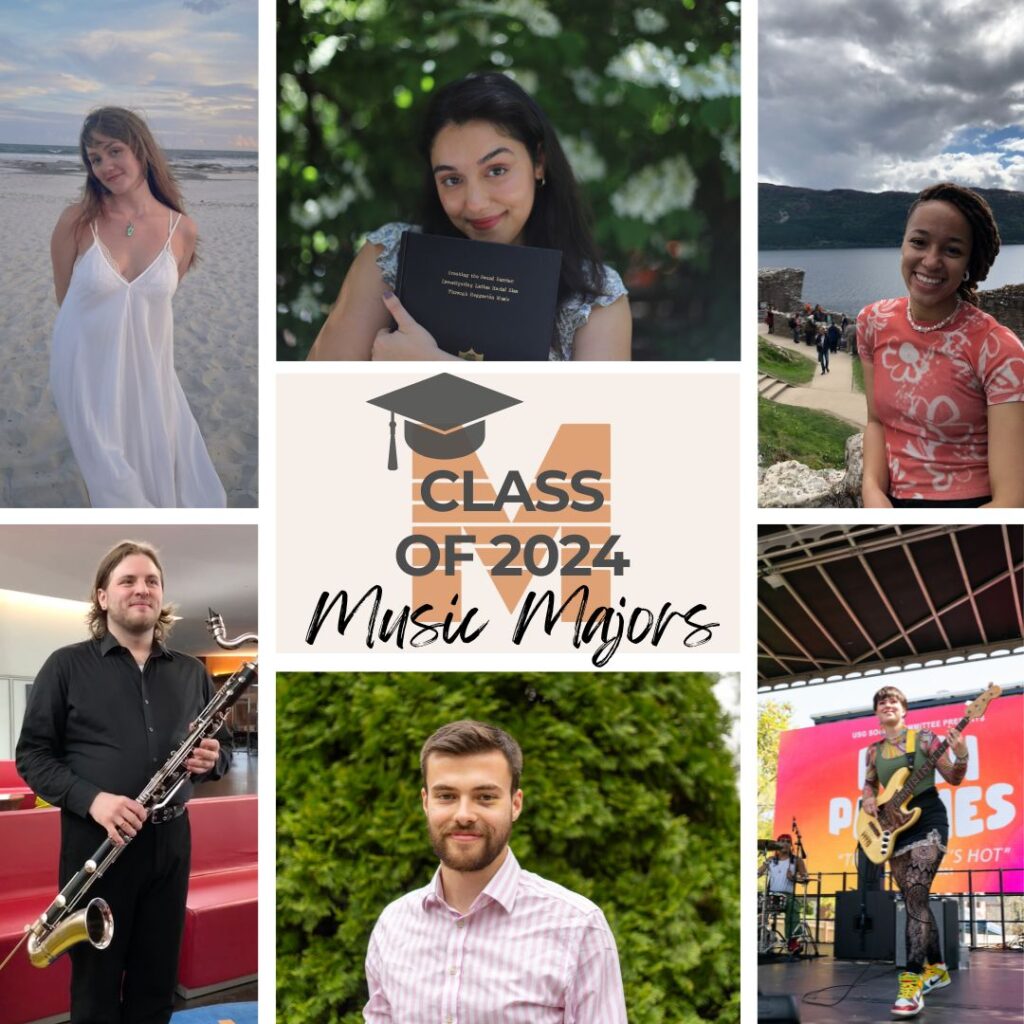
What Six Senior Music Majors’ Say About Their Theses
May 16, 2024
As we near the final weeks of spring semester and anticipated graduation for the Class of 2024, the Music Department asked six Senior Music Majors to expand on their creative thesis, as well as share words of encouragement to future students.
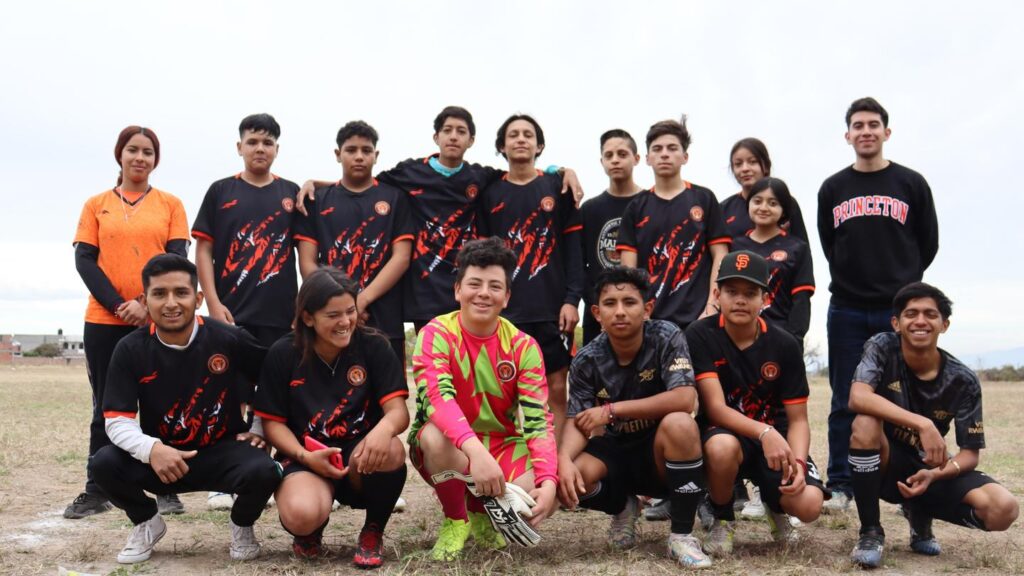
It takes a village: Projects for Peace winner Carlos Cortez ’24 and the people of Zináparo bring music and soccer to their youth
Jan 23, 2024
It takes a village: Projects for Peace winner Carlos Cortez ’24 and the people of Zináparo bring music and soccer to their youth
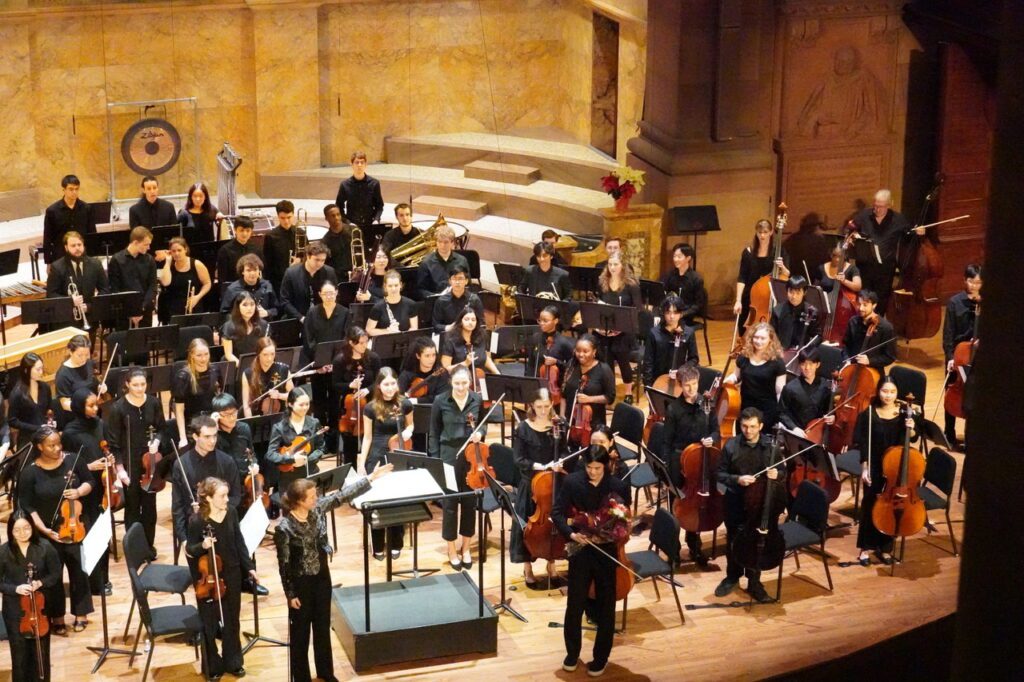
Student Perspectives: The Musical Odyssey of Princeton’s Adrian Thananopavarn
Jan 18, 2024
Adrian P. Thananopavarn ’24, Math major with certificates in Computer Science and Music Composition, premieres “March of Dusk” with Princeton University Sinfonia

